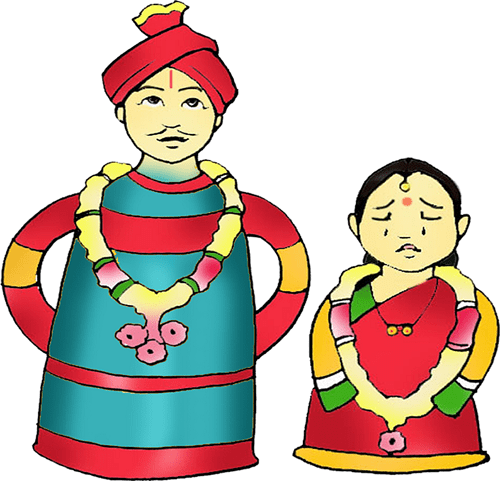

26th Dec, 2022
The COVID-19 pandemic heightened the risk of child marriages and India too witnessed a surge in underage marriages across several states.
Child marriages rob girls of their childhood and threaten their health, often leading to early pregnancies, domestic violence, as well as mental health issues. In Karnataka, 21.3* % of girls were married before 18.
Adolescent girls from Northern Karnataka are more vulnerable to child marriages due to poverty, caste system, unemployment, inequitable gender and social norms. The Belagavi district is known as the ‘sugar bowl’ of Karnataka, but the bitter truth is that 32.8* % of girls from this district married before 18.
Since August 2022, the Sphoorthi ‘Girl Leads Girl’ project is being implemented in this district to empower adolescents through life skills education to fight for their rights, negotiate with parents, and delay their marriages until they are ready.
In October, Roopa, the District Project Coordinator of Sphoorthi, Belagavi organised a meeting with all the ASHAs and Anganwadi workers (frontline workers) and introduced them to the project. She also enquired if child marriage was rampant in their areas. To this, many ASHAs said although they notice child marriages, they are unable to stop them. They decided to work as a team and prevent forced marriages.
It was during the Dussehra festival that homes in Chachadi village, Saundatti taluk were decorated to welcome the goddess, Durga. 15-year-old Geeta’s# home was particularly festive. The village ASHA worker, Shobha, grew suspicious and made some enquiries. Geeta’s neighbour informed her that she was getting married on Dussehra day.
Geeta is the eldest of three siblings. Her father, an alcoholic, does not work. She was forced to drop out of school to help her mother with the household chores and also work to support the family. Her mother believed that girls were a liability and decided to get her married. The groom, who was double her age, offered gold and gifts to her family in return for Geeta’s hand, and the family readily agreed. Geeta was trapped and did not know where to turn.
But hope was not far away. Shobha spoke to Roopa, and they took the support of the Child Development Project Officer and thwarted the marriage. Geeta’s parents were made to sign a bond paper, a legally enforceable document, stating that they will not get Geeta married until she turns 18.
Roopa and Shobha also counselled the family about the importance of education and the family agreed to enroll Geeta into a school from the next academic year.
“I am glad the marriage did not take place. I am looking forward to going to school again,” says Geeta.
Dedicated District Programme Coordinators like Roopa, with the support of the government, are on a mission to empower girls through the Sphoorthi program to stand up for their rights and break rigid gender norms, including those around marriage, to achieve their full potential.
*National Family Health Survey (NFHS-5; 2019-2020)
#- Name changed to protect identity
With inputs from KHPT’s Anshu Kumari, Communications Manager, and Roopa Koodalagimath, District Programme Coordinator, Belagavi